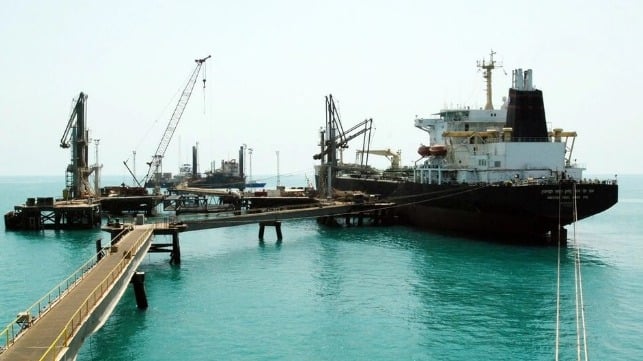U.S. Sanctions Efforts to Blend Iranian and Iraqi Oil to Avoid Restrictions

US Sanctions Efforts to Blend Iranian and Iraqi Oil to Avoid Trade Restrictions
The United States, through its sanctions program, is increasing the pressure on the Iranian oil trade and the efforts to obfuscate the origins of the oil by blending. New sanctions announced on September 2 by the U.S. the U.S. Department of the Treasury’s Office of Foreign Assets Control (OFAC) targeted the business network of a UAE-based businessman, Waleed al-Samarra’I, and nine Liberian-flagged tankers, which the U.S. says have generated millions of dollars in oil revenue.
The network, the U.S. contends, operates primarily by covertly blending Iranian oil with Iraqi oil, which is then marketed intentionally as solely of Iraqi origin. Based on conservative estimates, the U.S. says al-Samarra’i’s network generates around $300 million of value to both Iran and its partners annually.
Waleed Khaled Hameed al-Samarra’i, a citizen of both Iraq and St. Kitts & Nevis, runs a network of companies managing vessels that have been involved in the sale of Iranian oil to international markets. To smuggle the Iranian-origin oil, al-Samarra’i uses a group of vessels to blend Iranian and Iraqi oil at sea, via ship-to-ship transfers in the Arabian Gulf, and in Iraqi ports. U.S.-sanctioned vessels publicly affiliated with Iran’s shadow fleet are being employed to distance the network from direct interactions with the Iranian petroleum sector. The vessels also engage in other obfuscation techniques to hide their activities, such as unsafe ship-to-ship transfers at night, Automated Identification System (AIS) spoofing, and conspicuous gaps in AIS location reporting.
Al-Samarra’i relies on his two UAE-based companies, Babylon Navigation DMCC and Galaxy Oil FZ LLC, to manage his network’s operations. The tankers, Adena, Liliana, Camilla, Delfina, Bianca, Roberta, Alexandra, Bellagio, and Paola, are Liberian-flagged but owned by several Marshall Islands-based shell companies, the U.S. reports.
It is the second time the U.S. has sanctioned a network it says is involved in the blending efforts. In July, it sanctioned the network of Salim Ahmed Said. The U.S. says these efforts are part of its commitment to “eliminating Iran’s pernicious influence on Iraq’s economy and upholding a campaign of maximum economic pressure on Iran.”
Experts highlight that Iran continues to look for methods of working around the U.S. sanctions on its oil industry.
The U.S. has also been putting pressure on Iraq to crack down on the tankers. In July, Iraqi officials released a list of tankers that they were barring from their oil operations, accusing them of being involved in the obfuscation efforts.
